Films with theme "Dance films", sorted by revenue
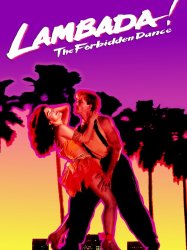
The Forbidden Dance (1990)
, 1h37Directed by Greydon Clark
Origin USA
Genres Drama, Musical, Romance
Themes Dance films, Musical films
Actors Laura Harring, Sid Haig, Truman Linden Chiles, Shannon Farnon, Richard Lynch, Steven Williams
Nisa (Laura Harring) is the princess of a northern Brazilian tribe who comes to Los Angeles to stop an American corporation from destroying her rainforest home. With her is tribal shaman Joa (Sid Haig), who uses black magic to get past the company guards and see the chairman of the corporation, resulting in his arrest.

Carefree (1938)
, 1h23Directed by Mark Sandrich, Leslie Goodwins
Origin USA
Genres Comedy, Musical, Romance
Themes Dance films, Films about music and musicians, Musical films
Actors Fred Astaire, Ginger Rogers, Ralph Bellamy, Jack Carson, Hattie McDaniel, Vinton Hayworth
Psychiatrist Dr. Tony Flagg (Fred Astaire) does his friend Stephen Arden (Ralph Bellamy) a favor by taking on his fiancee, Amanda Cooper (Ginger Rogers), as a patient. Amanda, a singer on the radio, can't seem to make a decision about Stephen's many proposals of marriage, so Tony probes her subconscious, but in the process Amanda falls in love with him. He brings her interest back to Stephen with hypnosis, but then realizes that he also loves her and tries to hypnotize her again, leading to conflict with Stephen. Five minutes away from the wedding, he breaks into her dressing room with his assistant Connors (Jack Carson) and gets the chance to talk to her subconscious again when Stephen accidentally hits her instead of Tony. In the end, the two marry, much to the surprise of the guests.
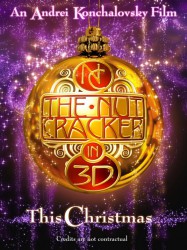 , 1h50
, 1h50Directed by Andreï Kontchalovski
Origin United-kingdom
Genres Science fiction, Fantasy, Action, Musical
Themes Dance films, Jeu, Films about magic and magicians, Films about music and musicians, Christmas films, Musical films, Films about toys, Children's films
Actors Elle Fanning, Charlie Rowe, John Turturro, Frances de la Tour, Nathan Lane, Daniel Peacock
Mary's (Elle Fanning) seemingly dull Christmas is suddenly filled with excitement and adventure following the arrival of her Uncle Albert (Nathan Lane), who gives her a Nutcracker as a gift. Later that night, Mary dreams that the Nutcracker--called N.C. (Charlie Rowe)--comes to life and takes her on a wondrous journey. They discover that the Nazi-like Rat King (John Turturro) has usurped the Nutcracker's kingdom.

Body Rock (1984)
, 1h33Origin USA
Genres Drama, Musical
Themes Dance films, Musical films
Actors Lorenzo Lamas, Cameron Dye, Michelle Nicastro, Grace Zabriskie, Tony Ganios, Ray Sharkey
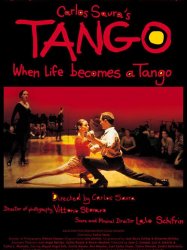
Tango (1998)
, 1h55Directed by Carlos Saura
Origin Espagne
Genres Drama, Musical theatre, Musical, Romance
Themes Dance films, Films about music and musicians, Films about sexuality, Musical films, Tango films, LGBT-related film, Lesbian-related films
Actors Miguel Ángel Solá, Mía Maestro, Juan Luis Galiardo, Cecilia Narova, Enrique Pinti
In Buenos Aires, Mario Suárez, a middle-aged theatre director, is left holed up in his apartment, licking his wounds when his girlfriend (and principal dancer) Laura leaves him. Seeking distraction, he throws himself into his next project, a musical about the tango. One evening, while meeting with his backers, he is introduced to a beautiful young woman, Elena, the girlfriend of his chief investor Angelo, a shady businessman with underworld connections. Angelo asks Mario to audition Elena. He does so and is immediately captivated by her. Eventually, he takes her out of the chorus and gives her a leading role. An affair develops between them, but the possessive Angelo has her followed, and threatens her with dire consequences if she leaves him, mirroring Mario's own feelings and actions towards Laura before Elena entered his life.
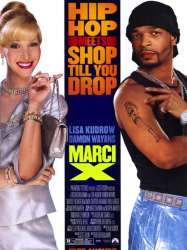
Marci X (2003)
, 1h24Directed by Richard Benjamin
Origin USA
Genres Comedy, Romantic comedy
Themes Dance films, Films about music and musicians, Films about religion, Hip hop films, Musical films, Films about Jews and Judaism
Actors Lisa Kudrow, Damon Wayans, Andrew Keenan-Bolger, Charles Kimbrough, Jane Krakowski, Richard Benjamin
Marci Feld, juive américaine, doit prendre la direction du label rap hardcore Felony Assault de son père Ben, celui-ci ayant subi une crise cardiaque en raison de la controverse entourant le titre Shoot Ya' Teacha de Dr. S. Pour sauver son père de la faillite, Marci tente de ramener le rappeur à plus de raison et d'adoucir son image de mauvais garçon. Au fil du temps, une relation amoureuse s'installe entre les deux protagonistes. Mais la sénatrice conservatrice Mary Ellen Spinkle promet de bannir des ondes le Dr S et ses paroles outrageuses pour toujours.
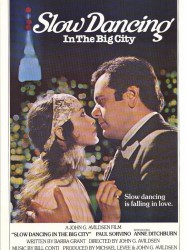
Slow Dancing In The Big City (1978)
, 1h50Directed by John G. Avildsen
Origin USA
Genres Drama, Musical, Romance
Themes Dance films, Films about music and musicians, Musical films
Actors Paul Sorvino, Nicolas Coster, Danielle Brisebois, Bill Conti, Thaao Penghlis, Lloyd Kaufman
Lou Friedlander (Paul Sorvino) is a popular columnist for the New York Daily News, writing about the little people of bustling New York City while befriending a street boy named Marty (Adam Gifford). His life changes dramatically upon falling in love with neighbor Sarah Gantz (Anne Ditchburn), a young ballerina who had just discovered she is stricken with a debilitating condition that will eventually force her to quit dancing.

The Hollywood Revue of 1929 (1929)
, 1h56Directed by Charles Reisner
Origin USA
Genres Comedy, Musical theatre, Musical
Themes Dance films, Films about music and musicians, Musical films, Buddy films
Actors Conrad Nagel, Jack Benny, Joan Crawford, Marion Davies, Anita Page, Marie Dressler
Avec l'arrivée du cinéma parlant et les prémices du Technicolor les grandes compagnies cinématographiques hollywoodiennes décidèrent de mettre en chantier ce que l'on n'appelait pas encore "superproduction". De fait il s'agissait de réunir dans un même film l'ensemble des acteurs composant leurs écuries respectives. Ainsi la Warner Bros. fit-elle réaliser son The Show of Shows tandis que de son côté La Métro sortait Hollywood chante et danse rassemblant ses comédiens parmi lesquels naturellement Stan Laurel et Oliver Hardy. Pas de scénario dans ce fil qui est composé d'une succession de numéros musicaux pour lesquels les acteurs furent invités à faire un peu le contraire de ce qu'ils faisaient d'habitude à l'écran. Laurel et Hardy s'en tirent plutôt bien en jouant les présentateurs magiciens.

A Damsel in Distress (1937)
, 1h38Directed by George Stevens
Origin USA
Genres Comedy, Musical theatre, Musical, Romance
Themes Dance films, Films about music and musicians, Films about classical music and musicians, Jazz films, Musical films
Actors Fred Astaire, George Burns, Gracie Allen, Joan Fontaine, Reginald Gardiner, Constance Collier
Everyone on staff at Tottney Castle knows that the lovely Lady Alyce Marshmorton must marry soon, so a wager is proposed as to the identity of the lucky man. With all the likely candidates already claimed, young footman Albert places a bet on a "Mr. X," someone totally out of the blue.

Make Your Move (2014)
Origin USA
Genres Musical, Romance
Themes Dance films
Actors Will Yun Lee, Derek Hough, BoA, Wesley Jonathan, Miki Ishikawa, Rick Gonzalez
The following article/source written in 2011 has a brief synopsis.

The Red Dance (1928)
, 1h30Directed by Raoul Walsh
Origin USA
Genres Drama, Historical, Romance
Themes Dance films, Children's films
Actors Dolores del Río, Charles Farrell, Andres de Segurola, Ivan Linow, Dorothy Revier, Henry Armetta
Tasia (Dolores del Río), a beautiful dancer lower class of Russia, falls heir to the throne Prince, Grand Duke Eugene (Charles Farrell), but only admired from a distance. At the outbreak of the Russian Revolution, the Duke falls in captivity and this allows Tasia be near him.

Vox Lux (2018)
Directed by Brady Corbet
Origin USA
Genres Drama, Musical
Themes Dance films, Films about music and musicians, Hip hop films, Musical films
Actors Natalie Portman, Jude Law, Raffey Cassidy, Stacy Martin, Jennifer Ehle, Daniel London
L'histoire de Celeste, une star de la pop, sur une durée de quinze ans.
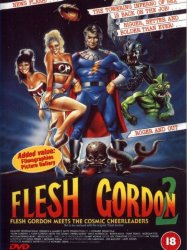 , 1h38
, 1h38Origin Canada
Genres Science fiction, Comedy, Adventure, Comic science fiction
Themes Dance films, Space adventure films, Films about sexuality, Sports films, Erotic films, Comedy science fiction films, Space opera
Actors Vince Murdocco, William Dennis Hunt, Alison Armitage
Flesh (Vince Murdocco) is kidnapped by cheerleaders from a world known only as The Strange Planet, after the men on their planet are rendered impotent thanks to the villain known only as the Evil Presence (William Dennis Hunt). The Evil Presence, who is in an unhappy relationship with Queen Frigid (Maureen Webb), soon learns of Flesh's arrival on the planet, and wishes to transfer Flesh's penis to himself, in order to make up for his own poor endowment.

The Tales of Hoffmann (1951)
, 2h8Directed by Michael Powell, Emeric Pressburger
Origin United-kingdom
Genres Drama, Science fiction, Fantasy, Adventure, Musical, Romance
Themes Dance films, Films about writers, Films about music and musicians, Musical films, Films based on operas
Actors Moira Shearer, Ludmila Tcherina, Robert Helpmann, Pamela Brown, Ann Ayars, Mogens Wieth
In the prologue, Hoffmann is in the audience at a performance by Stella, a prima ballerina. Stella sends Hoffmann a note asking him to meet her after the performance, but the note is intercepted by his rival, Councillor Lindorf. Not having received her note, Hoffmann goes to the tavern in the interval, where he tells the story of a clown, Kleinzach and three stories of his past loves — Olympia, Giulietta and Antonia, and gets drunk.
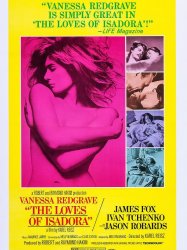
Isadora (1968)
, 2h48Directed by Karel Reisz
Origin United-kingdom
Genres Drama, Biography, Historical, Musical, Romance
Themes Dance films, La provence
Actors Vanessa Redgrave, James Fox, Jason Robards, John Fraser, Bessie Love, Zvonimir Črnko
In 1927, Isadora Duncan has become a legend as the innovator of modern dance, a temperamental bohemian, and an outspoken advocate of free love. Now past 40, she lives in poverty in a small hotel on the French Riviera with her companion Mary Estelle Dempsey/Mary Desti (named only as Mary in the film) and her secretary Roger, to whom she is dictating her memoirs. As a young girl in California, Isadora first demonstrates her disdain for accepted social standards by burning her parents' marriage certificate and pledging her dedication to the pursuit of art and beauty. In 1896, she performs under the name of Peppy Dora in a rowdy music hall in Chicago and publicly embarrasses the theatre manager into paying her $300 so that she can take her family to England. Modeling her free-form style of dance and costume after Greek classicism, she rapidly acquires international acclaim.
 Connection
Connection